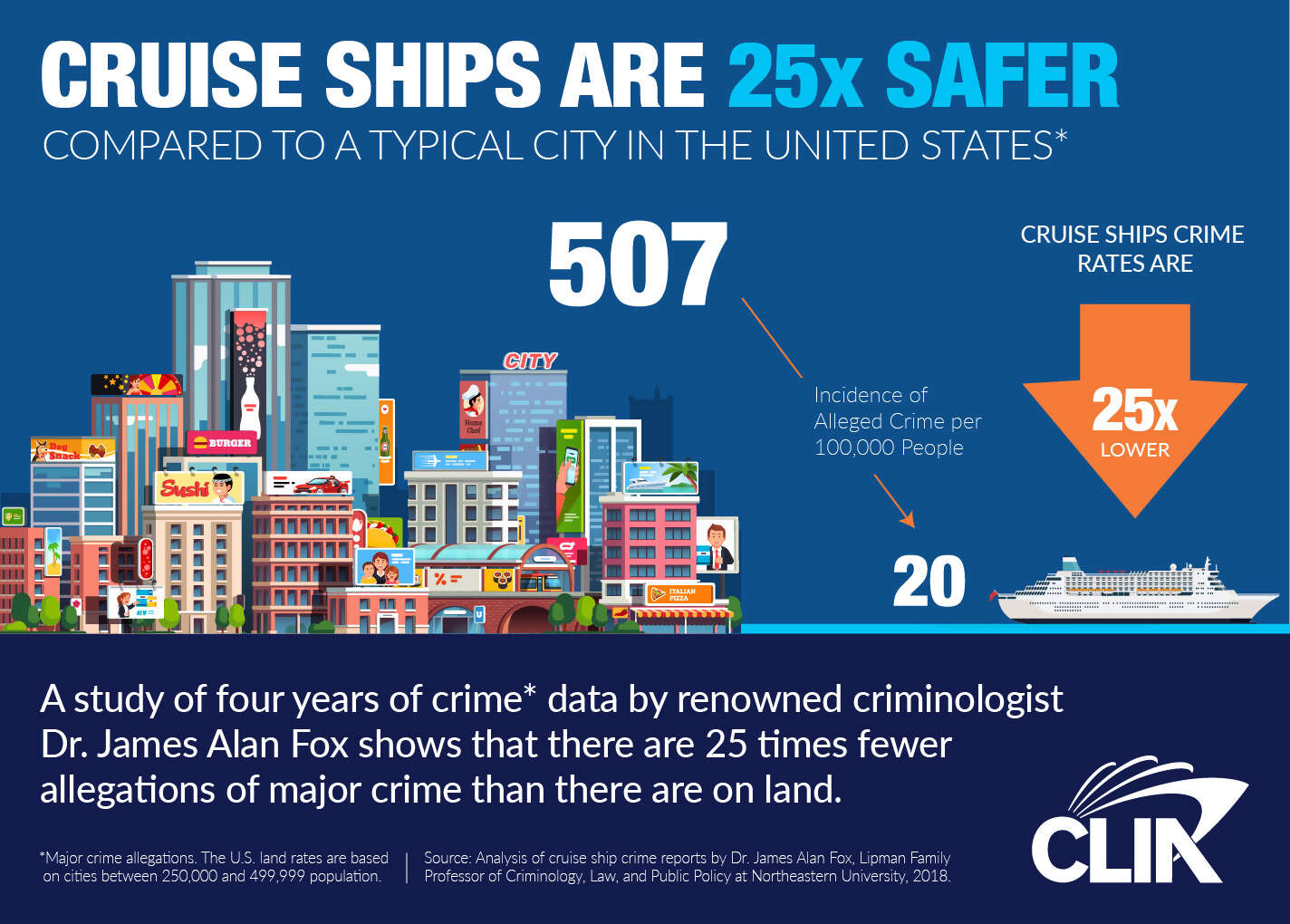Cruise ships are one of the safest vacation options in the world, with rates of serious crimes that are exceedingly lower than those on land.
Cruise ships are one of the safest vacation options in the world, with rates of serious crimes that are exceedingly lower than those on land. Data from the FBI supports this fact, and due to multiple layers of security, allegations of major crimes on cruise ships are extremely rare.
Ensuring Security at Sea
- Comprehensive Security: The cruise industry follows comprehensive security protocols, both prior to departure and at sea. Passengers, crew, and baggage must pass through rigorous security checkpoints before boarding. In addition to video surveillance and around-the-clock onboard emergency contacts, cruise ships keep an official manifest that lists everyone onboard. Proof of identity is required to access a cruise ship, and only crew, ticketed passengers and those on a pre-approved list may enter.See Cruise ships safety study
- Highly Trained Security Personnel: Exceptionally trained ship security personnel are on call 24/7. Major cruise lines have sophisticated security departments run by former federal, state and military law enforcement officials and are staffed by competent, qualified security personnel. Every ship sailing to or from the U.S. must have at least one crew member onboard specifically trained in crime prevention, detection, and reporting.
- Transparency in Crime Reporting: The cruise industry is deeply committed to transparency in crime reporting. Cruise Lines International Association (CLIA) Cruise Line's voluntarily report any serious crime allegation involving an American on oceangoing voyages worldwide, regardless of the ship’s location and flag. For alleged crimes involving foreign citizens outside of U.S. waters, the victim’s home country has the full authority to investigate, as well as local law enforcement and the country where the ship is registered.
- Sample Prohibited Items List: The Sample Prohibited Items List includes items that the security professionals of CLIA’s members have identified as potentially being dangerous or posing a risk to the crew, passengers or ship. Possession by passengers or crew of these items is generally not permissible without a valid reason, unless required in direct support of ship operations, as part of a crew member’s official duties, and with consent of a duly authorized ship representative. Sample Prohibited Items List PDF

 Nicola Radde
Nicola Radde